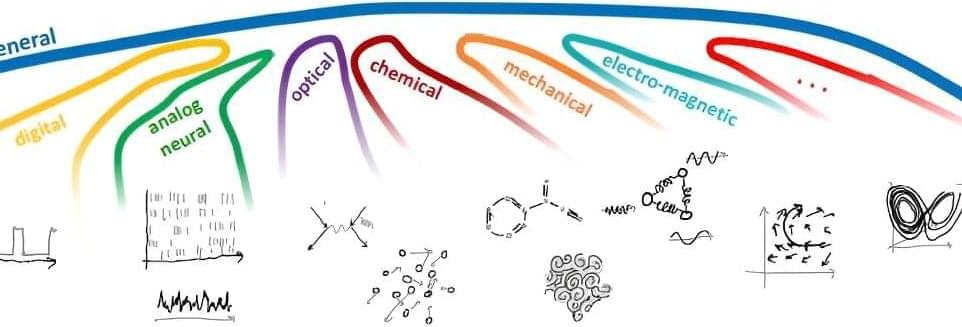There is an intense, worldwide search for novel materials to build computer microchips with that are not based on classic transistors but on much more energy-saving, brain-like components. However, whereas the theoretical basis for classic transistor-based digital computers is solid, there are no real theoretical guidelines for the creation of brain-like computers.
Such a theory would be absolutely necessary to put the efforts that go into engineering new kinds of microchips on solid ground, argues Herbert Jaeger, Professor of Computing in Cognitive Materials at the University of Groningen.
Computers have, so far, relied on stable switches that can be off or on, usually transistors. These digital computers are logical machines and their programming is also based on logical reasoning. For decades, computers have become more powerful by further miniaturization of the transistors, but this process is now approaching a physical limit. That is why scientists are working to find new materials to make more versatile switches, which could use more values than just the digitals 0 or 1.









Comments are closed.